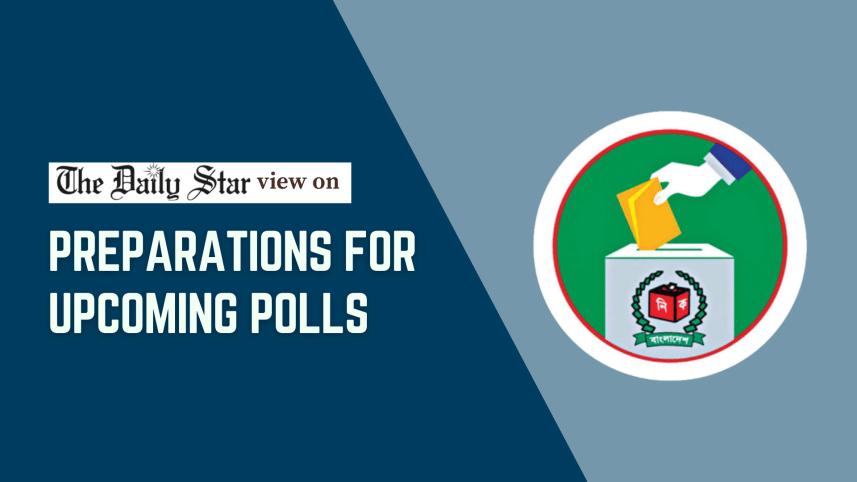Election Commission must create a level playing field for all

After protracted tensions over the timing of the 13th parliamentary elections, the confirmation of a February date by Chief Adviser Prof Muhammad Yunus on Tuesday should dispel any doubts in this regard. Reportedly, Yunus has already instructed the Election Commission to complete all arrangements before Ramadan in February. Barring any disruption to this timeline in the ensuing months, the country is officially on the path to its next election. The test now lies in ensuring that this path remains democratic. One concern flagged by some parties involves creating a level playing field so that all parties have a fair chance of participation. This is a legitimate concern given the disturbing trend of crimes, political violence, and security lapses seen over the past months. Can the government limit their effect in electioneering?
It will undoubtedly be very challenging. A recent report by the Transparency International Bangladesh (TIB) has presented an unflattering portrayal of ongoing political and administrative practices. It highlighted how political parties, and politics in general, remained hostage to authoritarian practices of the past. Political violence, for instance, remains rampant, with 121 people killed and 5,189 injured in such clashes between August last year and June this year. Extortion by politically connected actors also remains widespread. Many were found to be involved in orchestrating mob attacks, or exploiting dubious cases against rivals. Politicisation of state institutions, including in the judiciary, has also continued. The performance of law enforcement agencies has been similarly disappointing, as they continue to allow arbitrary cases and detentions, while crimes of all sorts persist as before.
That being the situation, how can we trust that there will be a level playing field for all parties—old or new, small or large—and that the election will be free from violence or partisan influence? If the government wants to set an example for the future, it must take a critical look at all the institutions and stakeholders involved with the election, and ensure that everyone acts within the bounds of the law, without bias or undue influence. We are encouraged to learn that the EC and the home ministry have already set to the task of finalising their action plans. Reportedly, the ministry is planning to reshuffle DCs, SPs, UNOs, and OCs through a lottery to minimise administrative bias, and to speed up recruitment, training and other preparations. These efforts, however, must equally focus on the lead-up to the election to ensure proper electioneering. The EC, on the other hand, must establish a firm grip on the entire electoral process.
As we approach the election, it is crucial to rein in politically affiliated actors who can abuse their power, hold law enforcement agencies accountable for any rights or rules violations, and restore neutrality across all relevant state institutions.



 For all latest news, follow The Daily Star's Google News channel.
For all latest news, follow The Daily Star's Google News channel. 
Comments